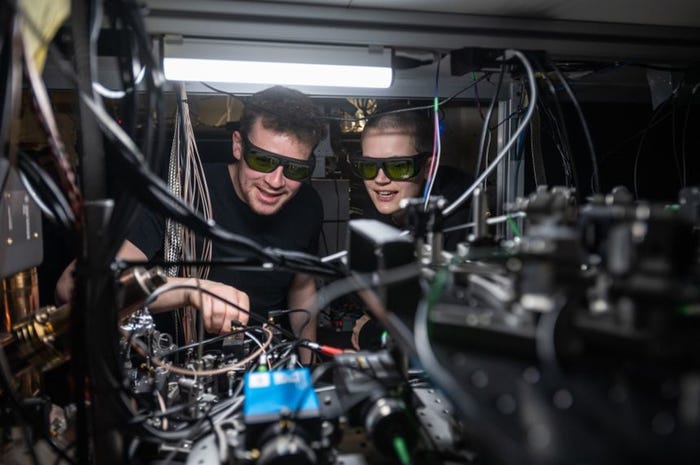
Connects decision-makers and solutions creators to what's next in quantum computing
Predicting the Super Bowl Winner, Quantum Waiting in the WingsPredicting the Super Bowl Winner, Quantum Waiting in the Wings
AI attempted to choose the winner of previous events but fell short

Super Bowl XVIII is taking place on Sunday with the Kansas City Chiefs taking on the San Francisco 49ers at the Allegiant Stadium in Las Vegas, Nevada.
Much of the sporting world is invested in the result, and over the past few years, AI has joined the armchair pundits in attempting to predict the result but hasn’t always come up trumps.
Enter Quantum’s sister title AI Business has tapped AI models for forecasts in the last few years. In 2023, it asked Unanimous AI, which combines the opinions of many people, to calculate the result. It gave a “slight lean” to the Philadelphia Eagles, with a confidence rating of five that the team would win on a scale of one to 10, indicating “medium confidence.” The Chiefs won, of course.
The previous year saw the National Football League’s new AI-powered Passing Score compare the competing teams’ quarterbacks. It gave Bengals’ quarterback Joe Burrow a score of 91 and an overall rank of two, edging out L.A. Rams’ quarterback Matthew Stafford, who also had a score of 91 but ranked third overall. The Rams won that year.
With easier access than ever to AI tools and chatbots, the sports-loving public will inevitably quiz their favorite engine. However, for ethical reasons, it takes some coaxing.
If you ask ChatGPT which team will win the Super Bowl, it replies: “I can't predict the future, including sports outcomes like the Super Bowl winner. The outcome depends on various factors including team performance, player injuries and coaching strategies. It's always exciting to watch and see which team emerges victorious!”
The tech review site Tom’s Guide did the legwork, asking three engines the important factors in predicting the results and fed stats like regular season win records, point differentials, playoff experience and injuries. It then fed these back into each engine. Bard, ChatGPT and Claude each predicted a victory for the Kansas City Chiefs over the San Francisco 49ers.
One source that has proven accurate in the past is EA Sports’ Madden NFL 24 game, which uses up-to-date stats on players and teams in a realistic simulation. This year it has predicted a close game with the Chiefs coming out on top in a 30 to 28 victory.
Whether quantum computing will be able to enhance future predictions remains to be seen.
The technology is still in an early stage of development, known as noisy intermediate scale quantum (NISQ). Experimentation involves a lengthy setup and it would be understandable if researchers were unwilling to drop their current work to test it with sporting punditry.
However, quantum computing shows promise at solving problems with many complex, interrelated factors that classical computers struggle with.
Several recent programs have been launched to enhance the types of generative AI that have been used to predict the Super Bowl result this year.
This week, quantum computing company D-Wave and industrial generative AI software company Zapata AI announced a collaboration to develop and market commercial applications that combine generative AI and quantum computing technologies.
Sports fans may not be getting their Super Bowl predictions from a quantum computer this year, but that could change in the near future.
Read more about:
Super BowlAbout the Author
You May Also Like






